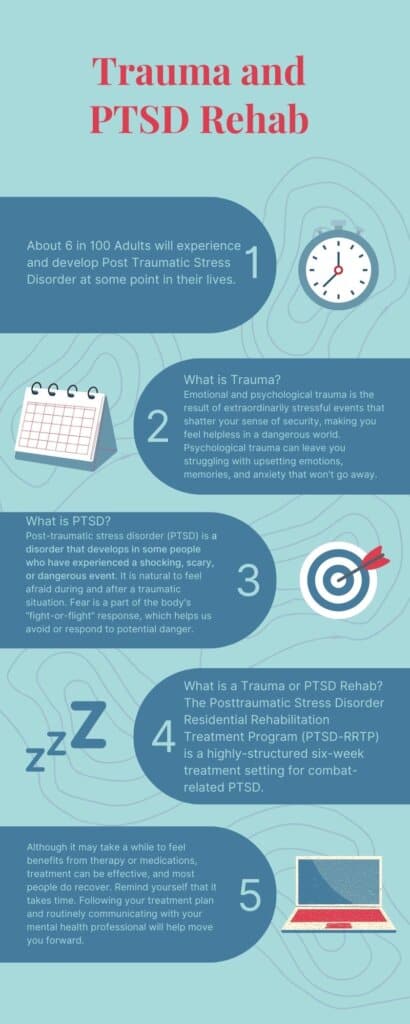Residential vs. Outpatient: Choosing the Right Trauma and PTSD Rehab in Massachusetts
According to NIMH, around 6.8% of Americans have experienced PTSD in their lifetimes. This calls for various treatment philosophies, which are being utilized by mental health rehab facilities in Massachusetts.
Exploring the path to recovery from post-traumatic stress disorder (PTSD) raises a crucial decision: residential versus outpatient trauma rehabilitation centers. This comparison addresses the considerations individuals and their support networks must weigh when choosing a treatment center.
In today’s article, we will understand the nuances between residential and outpatient mental health rehab options in Massachusetts.
A.Residential Treatment Program
Residential rehabilitation centers offer an immersive environment where individuals reside onsite for an extended duration. This intensive approach allows for round-the-clock therapeutic support, and structured routines for PTSD patients.
Moreover, it offers a supportive community, fostering a comprehensive healing atmosphere. Patients often benefit from the removal of external stressors and triggers, enabling them to focus solely on their recovery.
B.Outpatient Mental Health Rehab Massachusetts
On the other hand, outpatient trauma rehab provides flexibility by allowing individuals to reside at home while attending scheduled therapy sessions. This is a perfect option for individuals with busy schedules and obligations that prohibit residential commitment.
While offering more independence, outpatient programs require a higher level of self-discipline and may be challenging for individuals grappling with severe symptoms.
Residential Vs Outpatient: A Deeper Analysis
The choice between residential and outpatient care hinges on various factors, including the severity of PTSD symptoms, the level of support, and personal preferences. Both approaches incorporate evidence-based therapies, such as CBT and EMDR. They are tailored to address the unique needs of individuals on their journey to recovery.
Moreover, financial considerations and insurance coverage play a role in decision-making. Residential programs often involve higher costs whereas outpatient options are more cost-effective.
Ultimately, the effectiveness of PTSD treatment depends on the chosen rehabilitation approach tailored according to the individual’s specific needs and circumstances. A balance between residential care and the flexibility of outpatient programs is essential for an effective path to healing.

Final Words
In conclusion, choosing between residential and outpatient PTSD trauma rehabilitation centers is a crucial step in the journey toward recovery. Each option offers unique advantages, from the immersive support of residential programs to the flexibility of outpatient care.
Understanding the differences between these approaches is important, considering factors such as the severity of symptoms, available support networks, and individual preferences.

